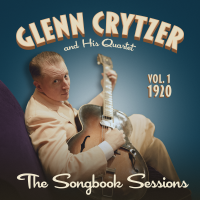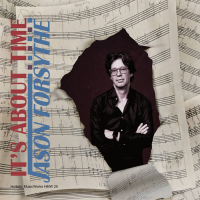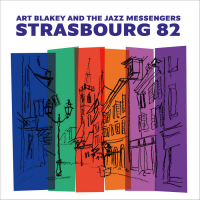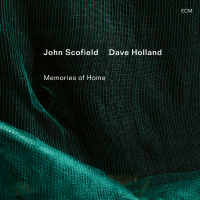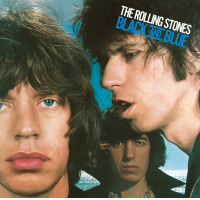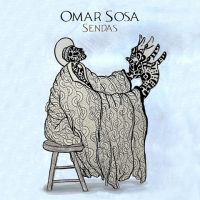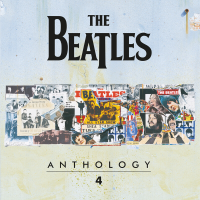Home » Jazz Articles » Multiple Reviews » KOH: Poetic Songs
KOH: Poetic Songs
 KOH
KOHDo-Chū
KOYA Records
2010
KOH's second release features collaborations with drummer Uemura, Fujii's partner, trumpeter Natsuki Tamura, and cellist Nankoh Kumon, a member of the Japanese Segments String Quartet. KOH's compositions follow the essence of her concise poems (all translated into English), and as such have their idiosyncratic outlines, often to surprisingly dramatic effect, and a playful character of building tension and releasing it. Her voice demonstrates wide range, moving from dark bottoms to a spectacular stratosphere.
On the opening "Window," the musical theme follows a short vocal descriptions of sights from a window during wintertime, but KOH and Uemura turn these observations into a drama of courtship between two musicians who improvise on the melody and the words, as well as the vocal content of the observations and the way they are mirrored musically by both players. "Ridgeline" is a beautiful, meditative sound poem, with Tamura in a masterful lyric mode, and cryptic lyrics that refer to our fragile existence. "Santoka," quoting haiku poems by modern poet Santoka Taneda, offers another side of KOH and Uemora—still playful, but with more pathos from KOH, who recites the insightful poems, while Uemura's very own sense of timekeeping accentuates certain segments of the poems and adds a humorous side to this duet.
The most impressive composition is the 12-minutes suite 'GARE," featuring Tamura and Uemura, both stressing KOH's poem about the sense of wonder and enchantment while encountering nature's ever-changing surroundings. All three musicians alternate solos that gain more power, depth and freedom as the suite develops. The chorale-like "Diaphanous veil" finds KOH whispering her mysterious poem, accompanied only by a distant organ, while the dramatic "Moon waxes" patiently keep blossoming, with Koh's assured, dramatic delivery and Uemura's understated drumming. "Signpost" quotes a beautiful poem by poetess Ayako Sono, while "For Whom Do You Love?" features KOH slowly reciting sad verses about the demise of a love-affair, accompanied by minimal piano, offering modest comfort with the harmonious sides of her melody and the poem's striking insights.
 Komado-No-Oh
Komado-No-OhTension
KOYA Records
2011
Tension is the debut from Komano-No-Oh, the duo of KOH and drummer Uemura, who began to perform under this name in 2009. A sense of playfulness is stressed here, and Uemura has much more freedom, in this context, to interpret KOH's dream-like poems with changing pulses and a wider palette of colors. He mirrors the often cryptic lyrics with healthy doses of fun, either challenging the dramatic delivery or simply injecting a surprising, aggressive shuffle drumming in the middle of an abstract reciting of a poem, as on "A Spider and a Flower."
On "Slope," Uemura accompanies KOH's almost operatic vocals with a galloping pulse that contrasts with KOH's distant delivery. "Ermine" sound like a children's song with its inventive language and the reference to a violent scene that may be borrowed from a popularmanga plot. "Footpath" and "Footprints" both highlight the affinity and telepathic interplay that KOH and Uemura have developed. "Seven" is an atypical ballad, delivered with restraint and grace. The bonus track, "A Swindler—#18," possesses some child-like call-and-response interplay between KOH and Uemura.
Both releases feature the highly creative power of KOH.
Tracks and Personnel
Do-Chū
Tracks: Window; Ridgeline; Santoka; The scent of the morning; GARE; 6variation?; Diaphanous veil; Moon waxes; Signpost.
Personnel: KOH: vocal, piano, keyboard; Natsuki Tamura (2, 5); trumpet; Masahiro Uemura: drums (1, 3, 5, 6, 8); Nankoh Kumon: cello (4).
Komado-No-Oh
Tracks: Doppyou (Spot Elevation); A Spider and a Flower; Slope; Ermine; Footpath; Footprints; Seven; A Swindler—#18.
Personnel: KOH: piano, vocal; Masahiro Uemura: drums.
Tags
PREVIOUS / NEXT
Support All About Jazz
 All About Jazz has been a pillar of jazz since 1995, championing it as an art form and, more importantly, supporting the musicians who make it. Our enduring commitment has made "AAJ" one of the most culturally important websites of its kind, read by hundreds of thousands of fans, musicians and industry figures every month.
All About Jazz has been a pillar of jazz since 1995, championing it as an art form and, more importantly, supporting the musicians who make it. Our enduring commitment has made "AAJ" one of the most culturally important websites of its kind, read by hundreds of thousands of fans, musicians and industry figures every month.
















